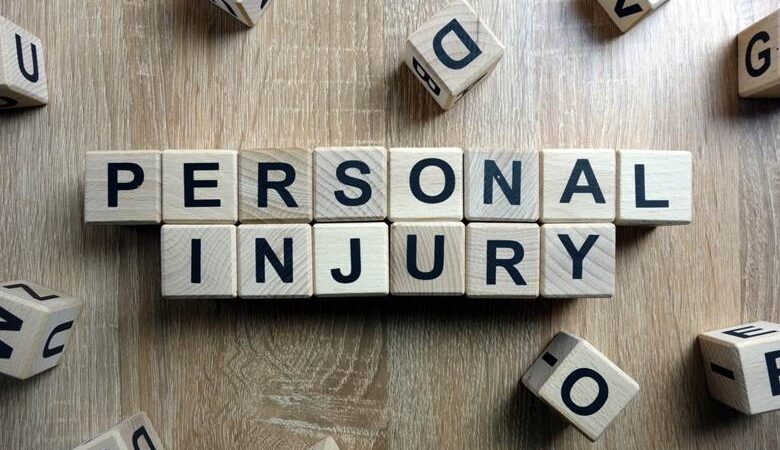Personal Injury Cases: Navigating the Road to Recovery

Discover the ins and outs of personal injury cases, from understanding what constitutes them to the importance of legal representation. Learn about the types of injuries, the claims process, and the factors influencing case outcomes. Dive into real stories of triumph and recovery and get answers to FAQs surrounding personal injury cases.
Embarking on a journey through personal injury cases requires a deep understanding of the legal landscape, the claims process, and the emotional toll it can take. In this comprehensive guide, we will explore the intricacies of personal injury cases, providing valuable insights, expert opinions, and answers to frequently asked questions.
For expert guidance on navigating personal injury cases, visit PattersonLegalGroup.com to explore valuable resources and connect with experienced attorneys dedicated to advocating for your rights.
Understanding Personal Injury
Personal injury cases encompass a wide range of incidents, from slip-and-fall accidents to medical malpractice. What exactly constitutes a personal injury case? Any harm inflicted on an individual due to another party’s negligence or intentional wrongdoing falls under this category.
Types of Personal Injuries
The scenarios leading to personal injuries are diverse, ranging from car accidents to workplace mishaps. Common scenarios include traffic collisions, premises liability incidents, and product defects. Understanding the types of injuries helps in assessing the grounds for a potential case.
Legal Framework
Navigating the legal landscape of personal injury cases is complex. Laws vary by jurisdiction, and having a grasp of the legal framework is crucial. From statutes of limitations to comparative negligence, each aspect plays a pivotal role in determining the outcome of a case.
Importance of Legal Representation
Why does hiring an attorney matter in personal injury cases? Legal representation ensures that your rights are protected, and a skilled attorney can navigate the intricacies of the legal system, advocating for the compensation you deserve.
Gathering Evidence
Building a strong case requires meticulous documentation. From medical records to eyewitness testimonies, gathering evidence is a critical step in establishing the facts and strengthening your position in a personal injury claim.
Personal Injury Claims Process
The step-by-step guide to filing a personal injury claim involves initial consultation, investigation, negotiation, and potential litigation. Understanding the process empowers individuals to actively participate in their case.
Compensation Breakdown
What constitutes compensation in personal injury cases? Understanding damages, both economic and non-economic, is essential. This section breaks down the types of compensation victims may be entitled to.
Timeframe for Resolution
How long does a personal injury case take? The timeframe varies, influenced by factors such as the complexity of the case, court schedules, and the willingness of parties to settle. Managing expectations is crucial during this period.
Factors Influencing Case Outcome
Several key elements influence the final decision in personal injury cases. From the strength of evidence to the credibility of witnesses, understanding these factors provides insight into the potential outcome of a case.
Settlement vs. Trial
Deciding between settlement and trial is a pivotal moment in a personal injury case. Each option has its pros and cons, and understanding them allows individuals to make informed decisions based on their unique circumstances.
Impact on Insurance
Dealing with insurance companies after an incident can be challenging. This section provides guidance on communicating with insurers and understanding the impact of a personal injury case on insurance premiums.
Emotional and Mental Well-being
Coping with the emotional and mental toll of a personal injury case is often overlooked. Strategies for maintaining well-being during this challenging time are explored, offering support beyond the legal aspects.
Client Testimonials
Real stories of triumph and recovery inspire hope. Reading about others who have navigated personal injury cases successfully provides encouragement and perspective.
Expert Opinions
Insights from legal and medical professionals shed light on the intricacies of personal injury cases. Expert opinions offer a deeper understanding of the legal and medical aspects involved.
FAQs
What is the typical timeframe for resolving a personal injury case?
The timeframe for resolution varies but generally ranges from several months to a few years, depending on the complexity of the case and other factors.
How much compensation can I expect to receive?
Compensation varies based on factors such as the severity of injuries, medical expenses, lost wages, and emotional distress. An attorney can provide a more accurate estimate after assessing the details of your case.
Do I need an attorney for a personal injury case?
While it’s possible to handle a personal injury case without an attorney, having legal representation significantly improves your chances of a successful outcome. Attorneys navigate the legal complexities and negotiate on your behalf.
Can I still file a personal injury claim if the incident was partially my fault?
Yes, you can. Many jurisdictions follow comparative negligence rules, allowing individuals to seek compensation even if they bear partial responsibility. The amount of compensation may be adjusted based on the degree of fault.
What documents should I gather for my personal injury case?
Important documents include medical records, accident reports, witness statements, photographs, and any correspondence with insurance companies. These documents strengthen your case during negotiations.
Is emotional distress considered in personal injury compensation?
Yes, emotional distress is a valid component of personal injury compensation. This includes the psychological impact of the incident, such as anxiety, depression, or trauma.
Conclusion
Navigating personal injury cases is a challenging but manageable journey with the right knowledge and support. From understanding the legal nuances to coping with the emotional toll, this guide aims to empower individuals facing personal injury cases. Remember, seeking legal advice and support can make a significant difference in the outcome of your case.




